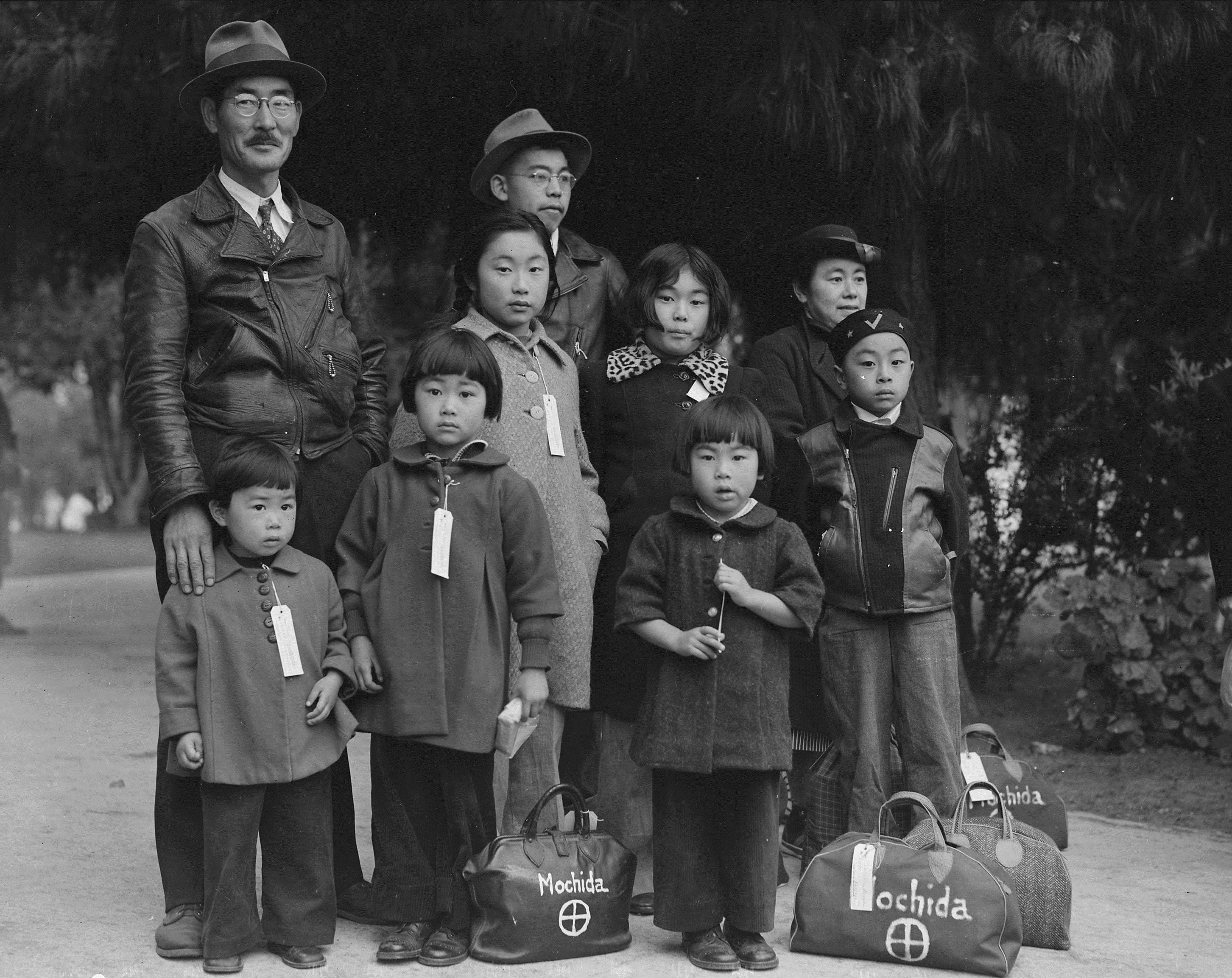This article was written by Hon. Denny Chin and Kathy Hirata Chin. Denny Chin is a United States Circuit Judge for the Second Circuit. Kathy Hirata Chin is a partner at Cadwalader, Wickersham & Taft LLP. They talk more extensively about this interesting topic in Issue 11 of The Historical Society of the New York Courts’ Judicial Notice, a journal of articles of historical substance and scholarship that focuses on legal history. This latest issue of Judicial Notice has shipped out and is only available to Society Members. Don’t miss out and become a member by clicking on the following link: Join the Society.
Photo: The Mochida Family Awaiting Evacuation, NARA, ID# 537505
Asian Americans have played a prominent role in America’s legal history. Although they have made up only a small fraction of the country’s population, Asian Americans have been at the center of many legal controversies. They have played an important role in numerous cases that have reached the United States Supreme Court, including cases involving exclusionary immigration laws, racial restrictions on naturalization as a U.S. citizen, racial segregation in public schools, and the internment of American citizens during a time of war because of their Japanese ancestry.
Historic cases can provide a window into the past, while raising issues that are still of relevance today. The Asian American Bar Association of New York (“AABANY”) has presented reenactments of nine historic cases involving Asian Americans. These reenactments have drawn on transcripts of court proceedings and other original documents as well as historic photographs. The reenactments have proven to be an effective teaching tool, and AABANY’s scripts have been performed all over the country, including by majority bar associations and at major law schools and universities.
In this Judicial Notice article, we explore generally the role that Asian Americans have played in American legal history, utilizing AABANY’s reenactments as a framework. In particular, we highlight four cases: (1) 22 Lewd Chinese Women, an immigration case that arose in San Francisco in 1874 and reached the Supreme Court in 1876; (2) Tokyo Rose, a trial in San Francisco in 1949 on charges of treason brought against a Japanese-American woman who served as a disc jockey on Radio Tokyo during World War II; (3) the Heart Mountain Draft Resisters, two draft evasion trials in Wyoming in the 1940s arising from the refusal of certain Japanese Americans to report for the draft while they and their families were imprisoned in the Heart Mountain internment camp; and (4) Vincent Chin, which involved criminal proceedings arising from the death of a young Chinese American at the hands of two auto workers following a barroom brawl in the Detroit area in 1982, at a time when the auto industry was facing enormous competition from Japanese auto companies.
The issues presented by these historic cases continue to confront us today, as they raise questions about race, civil and human rights, due process, national security, and federalism, as well as questions about how our courts respond to public pressure and how judges handle high-profile cases. These issues and the principles they implicate continue to be important, not just for Asian Americans, but for all Americans.

